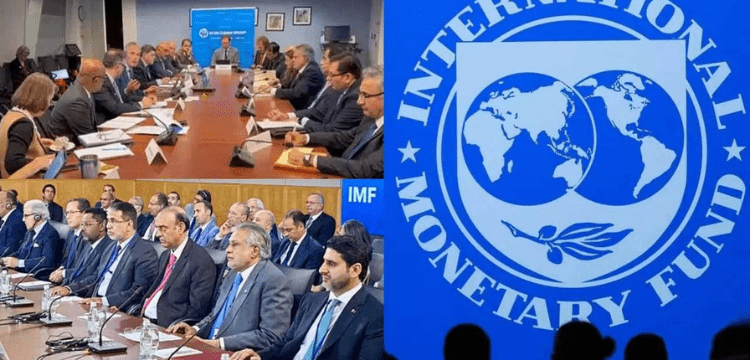[vc_row][vc_column][vc_column_text dp_text_size=”size-4″]The current state of affairs between the government and the IMF is still unclear. The draught of the “Memorandum of Economic and Financial Policies,” the important document outlining the requirements, steps, and policy decisions that will serve as the foundation of the staff-level agreement with the IMF, was delivered to Pakistan on Friday morning.
According to the administration, it represents the “settlement” of its disagreements with the Fund. However, the fact that the IMF team left the nation without completing the agreement shows that there are still significant holes to be filled.
Despite the “substantial progress” on steps to address internal and international imbalances, the IMF’s concise, carefully prepared conclusion to the 10-day loan discussions emphasises these gaps even more. The fact that the IMF statement emphasises the need for long-term income strategies to improve Pakistan’s fiscal condition suggests that the lender is dissatisfied with the government’s temporary revenue-increasing efforts.
Similar to yesterday, when Ishaq Dar, the finance minister, held an early morning press conference, it was difficult to understand where each side stood on the problems. We know that Islamabad has agreed to levy taxes totaling Rs170 billion, cut untargeted gas and energy subsidies, boost PDL on diesel by Rs10 to Rs50, increase BISP funding by Rs40 billion, and maintain the current cap on circular debt in the gas industry.
It is hoped that the two sides will work out their disagreements in the coming days since negotiations on the MEFP are set to resume practically on Monday to discuss the steps that must be taken before the final agreement is signed. The degree to which the current viewpoints on the subjects under discussion are divergent will still affect how the virtual dialogues turn out.
Islamabad will obviously bear the burden of persuading the Fund to relax some of its requirements and resolve disagreements. Due to the Fund’s declining reputation in recent months, Pakistan has so far found it challenging to work with it. As a result of declining official foreign inflows, we have seen a dramatic decline in its reserves, which are now below $3 billion.
The details of the final agreement with the IMF for the people are unknown. The common Pakistani would undoubtedly suffer greatly as a result of the actions required to restart the economy, but this is a cost that can no longer be avoided or minimised.
On the other hand, there will be more severe repercussions if the deal is not immediately closed. Sri Lanka offers a lesson that can be applied. If the negotiations go on for too long, Pakistan’s situation could get much worse. Even a speedier agreement won’t get us the IMF funds before the middle of next month, but it will enable inflows from allies and multilaterals to support the external sector’s weak structure.
[/vc_column_text][/vc_column][/vc_row]











